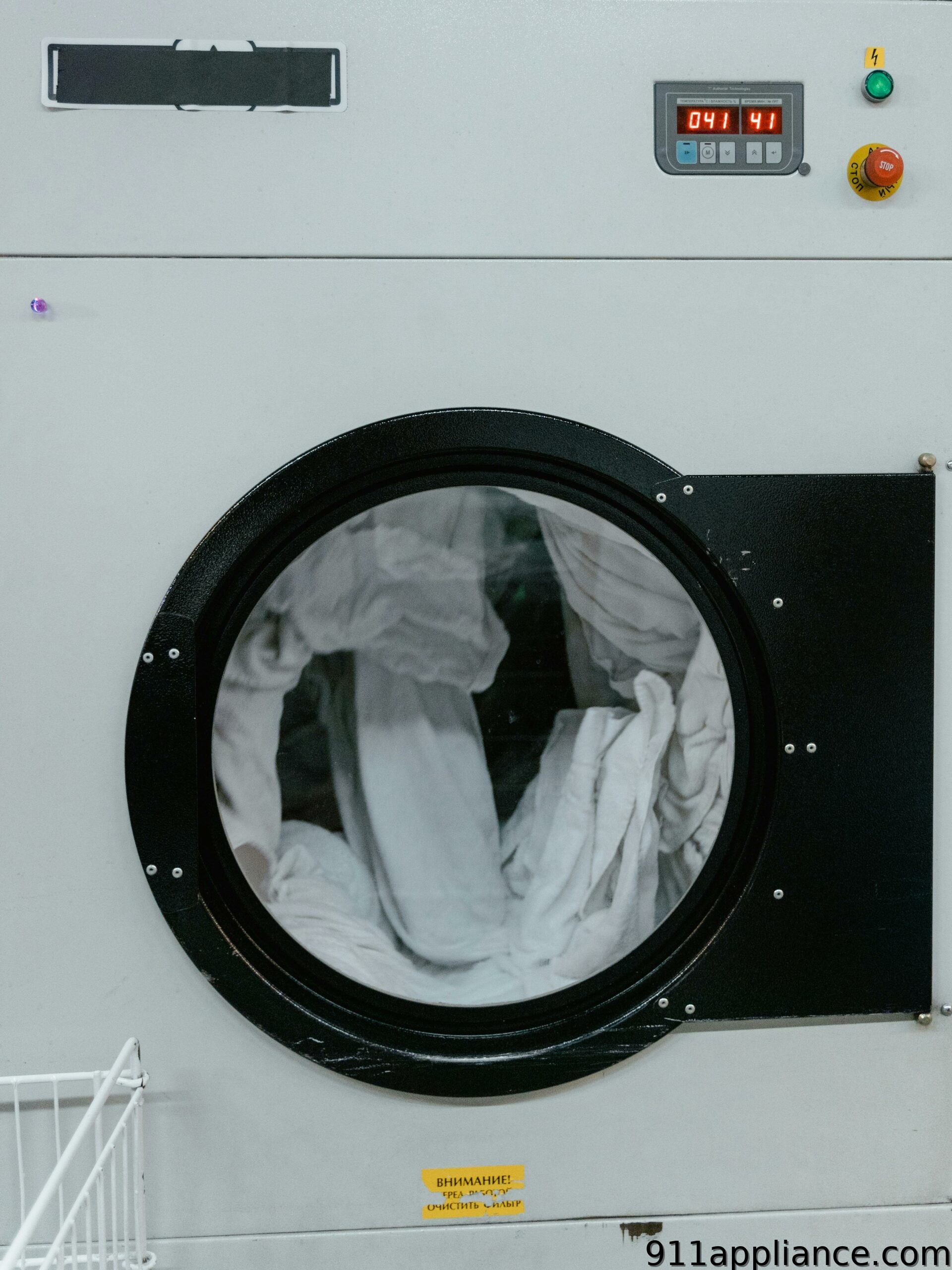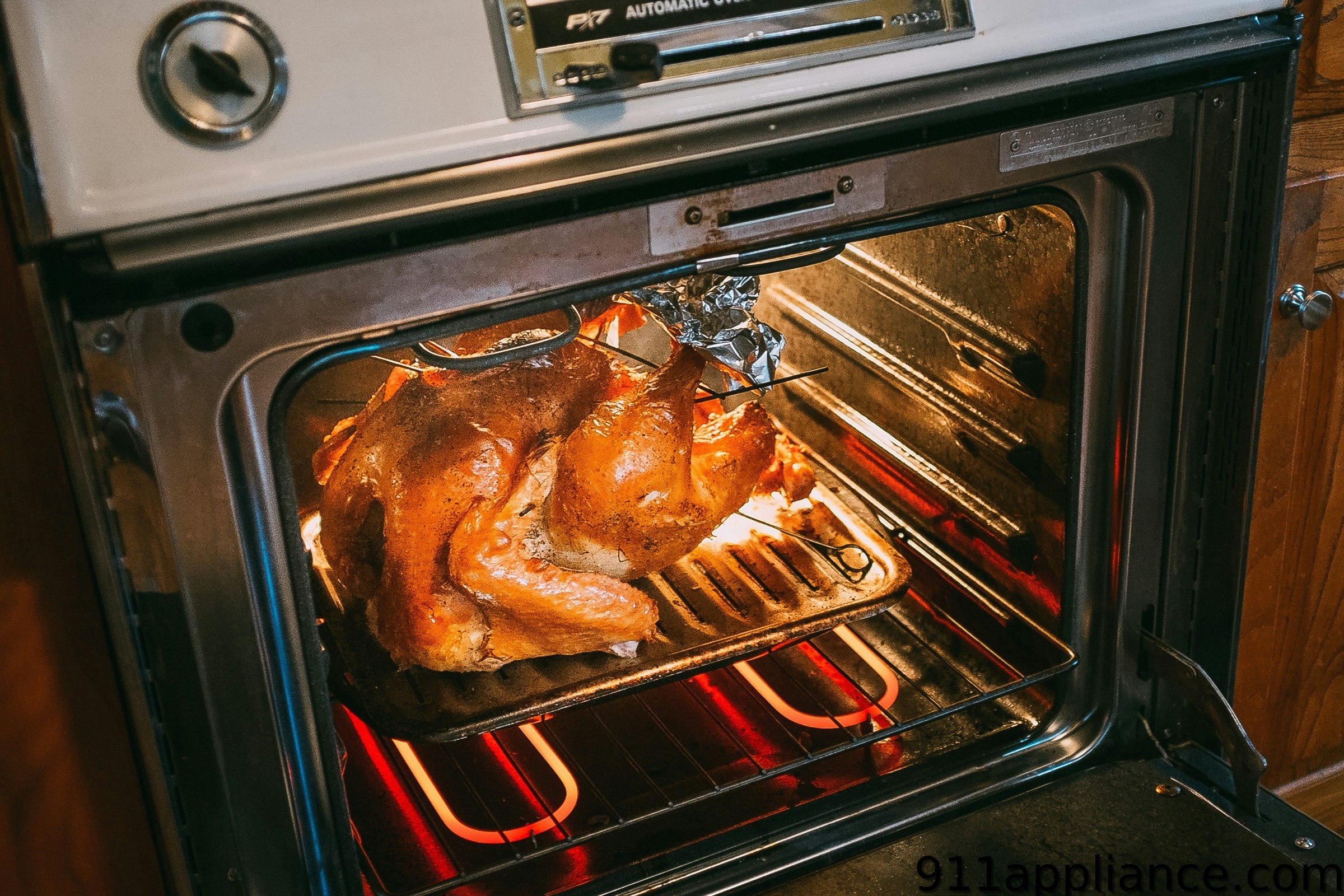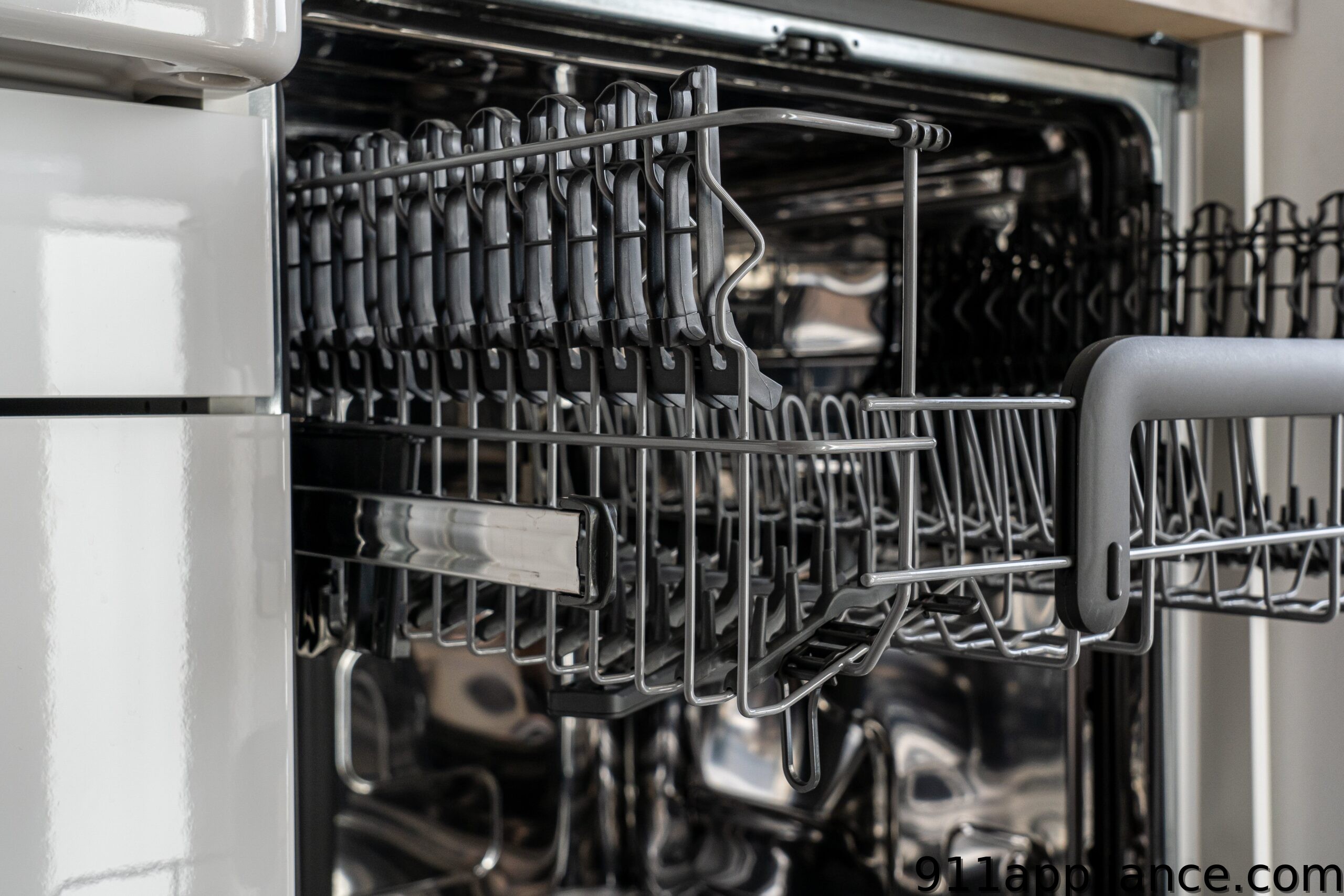Table of Contents
- Introduction
- Oven Not Heating Up: Causes and Solutions
- Uneven Cooking: Why Your Oven Might Be The Culprit
- Strange Noises Coming From Your Oven? Here’s What To Do
- Oven Door Won’t Close: Common Causes and Fixes
- Burnt Smell Coming From Your Oven? Here’s What It Could Mean
- Oven Light Not Working: Troubleshooting Tips
- Oven Overheating: What To Do When Your Oven Is Too Hot To Handle
- Gas Oven Not Lighting: Common Issues and How To Fix Them
- Self-Cleaning Function Not Working? Here’s How We Can Help
- When To Call A Professional Oven Repair Service: Signs To Look Out For
- Can Your Professional Repair Service Fix Issues with Wolf Stoves?
- Conclusion
Introduction
Having a functional oven is essential for any kitchen. Whether you’re baking a cake, roasting a chicken, or simply reheating leftovers, a reliable oven is a must-have appliance. However, like any other household appliance, ovens can experience issues from time to time. These issues can range from minor inconveniences to major problems that require professional repair. In this article, we will explore some common issues that can arise with ovens and provide solutions to help you troubleshoot and fix these problems.
Oven Not Heating Up: Causes and Solutions
One of the most frustrating issues you can encounter with your oven is when it fails to heat up. There are several possible causes for this problem. It could be a faulty heating element, a malfunctioning thermostat, or even a problem with the electrical connection. To troubleshoot this issue, start by checking if the oven is properly plugged in and that the circuit breaker hasn’t tripped. If everything seems fine on the electrical side, then it’s likely an internal issue.
If the heating element is faulty, it will need to be replaced. This can be done by disconnecting the power supply and removing the old element. You can then install the new element by connecting the wires and securing it in place. If the thermostat is the problem, it may need to be recalibrated or replaced altogether. Consult your oven’s manual or contact a professional for guidance on how to do this.
Uneven Cooking: Why Your Oven Might Be The Culprit
Another common issue that many people face with their ovens is uneven cooking. This means that food may cook faster or slower in certain areas of the oven, resulting in an inconsistent final product. There are several reasons why this may occur. One possibility is that the oven’s heating elements are not distributing heat evenly throughout the oven cavity. This can be caused by a buildup of grease or food debris on the elements, which can hinder their performance.
To address this issue, start by cleaning the heating elements. Use a soft brush or cloth to remove any grease or debris that may be present. If the elements are heavily soiled, you may need to use a mild detergent or oven cleaner to remove stubborn stains. Once the elements are clean, test the oven to see if the problem persists. If it does, there may be an issue with the oven’s internal temperature sensor or thermostat. In this case, it’s best to contact a professional for further assistance.
Strange Noises Coming From Your Oven? Here’s What To Do
If you’ve ever heard strange noises coming from your oven, you know how unsettling it can be. These noises can range from rattling and banging to hissing and popping. While some noises may be harmless and simply a result of the oven’s normal operation, others may indicate a more serious problem. It’s important to identify the type of noise and take appropriate action.
Rattling or banging noises may be caused by loose or worn-out parts within the oven. Check for any loose screws or brackets and tighten them if necessary. If the noise persists, it may be a sign of a faulty fan motor or blower wheel. In this case, it’s best to contact a professional for repair.
Hissing or popping noises could indicate a gas leak in a gas oven. If you smell gas along with these noises, it’s important to turn off the oven immediately and contact your gas provider for assistance. Gas leaks can be extremely dangerous and should be addressed by a professional as soon as possible.
Oven Door Won’t Close: Common Causes and Fixes
A common issue that many people encounter with their ovens is a door that won’t close properly. This can be frustrating and can also affect the oven’s performance. There are several reasons why an oven door may not close properly. One possibility is that the door hinges are worn out or damaged. Over time, the hinges can become loose or misaligned, preventing the door from closing fully.
To fix this issue, start by inspecting the hinges for any signs of damage or wear. If they appear to be damaged, they will need to be replaced. This can be done by removing the old hinges and installing new ones in their place. If the hinges are simply loose, you can try tightening them using a screwdriver.
Another possible cause of a door that won’t close is a faulty door seal or gasket. The seal is responsible for creating an airtight seal when the door is closed, preventing heat from escaping. If the seal is damaged or worn out, it may need to be replaced. Consult your oven’s manual or contact a professional for guidance on how to do this.
Burnt Smell Coming From Your Oven? Here’s What It Could Mean
If you’ve ever noticed a burnt smell coming from your oven, it’s important to address the issue promptly. There are several possible causes for this problem. One possibility is that food debris or grease has accumulated on the oven’s heating elements and is burning when the oven is turned on. This can create a strong burnt smell that can permeate throughout your kitchen.
To address this issue, start by cleaning the heating elements as mentioned earlier. Use a soft brush or cloth to remove any debris or grease that may be present. If the smell persists after cleaning, there may be an issue with the oven’s insulation or wiring. In this case, it’s best to contact a professional for further assistance.
Another possible cause of a burnt smell is a malfunctioning thermostat or temperature sensor. If these components are not functioning properly, they may cause the oven to overheat and emit a burnt smell. In this case, it’s best to contact a professional for repair.
Oven Light Not Working: Troubleshooting Tips
If the light in your oven is not working, it can make it difficult to see what you’re cooking. There are several reasons why an oven light may not be working. One possibility is that the light bulb has burned out and needs to be replaced. To do this, start by disconnecting the power supply to the oven. You can then remove the old bulb by unscrewing it from its socket. Install a new bulb by screwing it into the socket and reconnect the power supply.
If the light bulb is not the issue, there may be a problem with the oven’s light switch or wiring. In this case, it’s best to contact a professional for further assistance. They will be able to diagnose and repair the issue safely.
Oven Overheating: What To Do When Your Oven Is Too Hot To Handle
An oven that overheats can be a serious safety hazard. It can cause food to burn quickly and can even lead to a fire if left unattended. There are several possible causes for an oven overheating. One possibility is a faulty thermostat or temperature sensor. If these components are not functioning properly, they may cause the oven to heat up beyond the set temperature.
To address this issue, start by checking if the thermostat or temperature sensor needs to be recalibrated or replaced. Consult your oven’s manual or contact a professional for guidance on how to do this.
Another possible cause of an overheating oven is a malfunctioning control board or relay switch. These components regulate the flow of electricity to the heating elements and if they are faulty, they may cause the elements to stay on continuously, resulting in an overheating oven. In this case, it’s best to contact a professional for repair.
Gas Oven Not Lighting: Common Issues and How To Fix Them
If you have a gas oven and it’s not lighting, there are several possible reasons for this issue. One possibility is that the gas supply to the oven has been interrupted. Check if the gas valve is open and if the pilot light is lit. If the pilot light is out, you can relight it by following the instructions in your oven’s manual.
If the gas supply and pilot light are not the issue, there may be a problem with the igniter or spark electrode. These components are responsible for igniting the gas when the oven is turned on. If they are faulty, they may need to be replaced. Consult your oven’s manual or contact a professional for guidance on how to do this.
Self-Cleaning Function Not Working? Here’s How We Can Help
Many ovens come with a self-cleaning function that allows you to easily clean the oven without the need for harsh chemicals or scrubbing. However, this function may not always work as expected. There are several reasons why a self-cleaning function may not be working. One possibility is that the door lock mechanism is malfunctioning. The self-cleaning function requires the oven door to be locked during the cleaning process, and if the lock is not engaging properly, the function will not work.
To address this issue, start by checking if there are any obstructions preventing the door from closing fully. If there are no obstructions and the door still won’t lock, there may be a problem with the door lock mechanism itself. In this case, it’s best to contact a professional for repair.
Another possible cause of a self-cleaning function not working is a faulty temperature sensor or thermostat. These components regulate the temperature during the cleaning process, and if they are not functioning properly, the function may not work as expected. In this case, it’s best to contact a professional for further assistance.
When To Call A Professional Oven Repair Service: Signs To Look Out For
While many oven issues can be resolved with some troubleshooting and DIY repairs, there are certain signs that indicate a problem that requires professional repair. One of the most obvious signs is if the oven is not working at all. If you’ve tried troubleshooting and the oven still won’t turn on or heat up, it’s best to contact a professional for repair.
Other signs that indicate a need for professional repair include persistent issues such as uneven cooking, strange noises, or a burnt smell coming from the oven. These issues may indicate a more serious underlying problem that requires the expertise of a professional.
Can Your Professional Repair Service Fix Issues with Wolf Stoves?
If you’re experiencing problems with your Wolf stove, professional repair services can assist with troubleshooting common Wolf stove issues. From burner malfunctions to temperature inaccuracies, a skilled technician can identify and resolve the issue efficiently, ensuring your stove is back in working order in no time.
Conclusion
In conclusion, having a functional oven is essential for any kitchen. However, ovens can experience a range of issues that can affect their performance. From an oven not heating up to uneven cooking and strange noises, there are several common problems that can arise. By understanding the causes of these issues and following the troubleshooting tips provided, you can address many oven problems on your own. However, if you encounter persistent issues or signs that indicate a more serious problem, it’s best to contact a professional oven repair service. Promptly addressing oven issues will ensure that your appliance continues to function properly and safely for years to come.
If you’re in need of oven repair service, you’ll want to check out 911 Appliance’s blog. They have a wide range of informative articles that can help you troubleshoot common oven issues and provide tips for maintaining your appliance. One article that caught my attention is “The Importance of Warranties for Oven Repair.” It discusses why having a warranty is crucial when it comes to getting your oven repaired and how it can save you money in the long run. To read more about it, click here.



